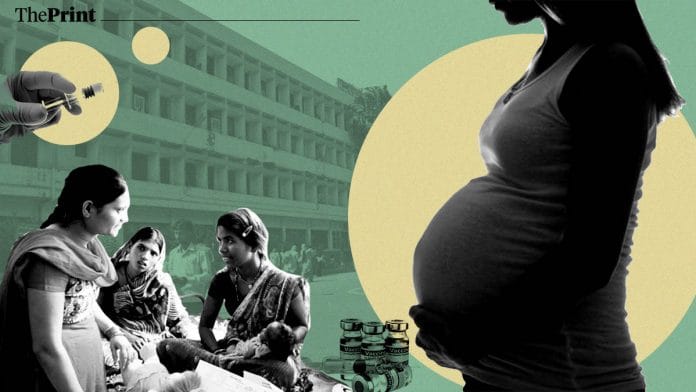New Delhi: Newly updated data on the Health Management Information System (HMIS) confirms the fears that regular health services — particularly those pertaining to women’s reproductive health and child immunisation — have been badly hit by the coronavirus-induced lockdown since March.
Compared to figures from the months of April, May and June 2019, an analysis by ThePrint shows, institutional deliveries fell by 28 per cent, oral contraception pill distribution by 21 per cent, abortions by 24 per cent, and post partum check-ups by 22 per cent this year.
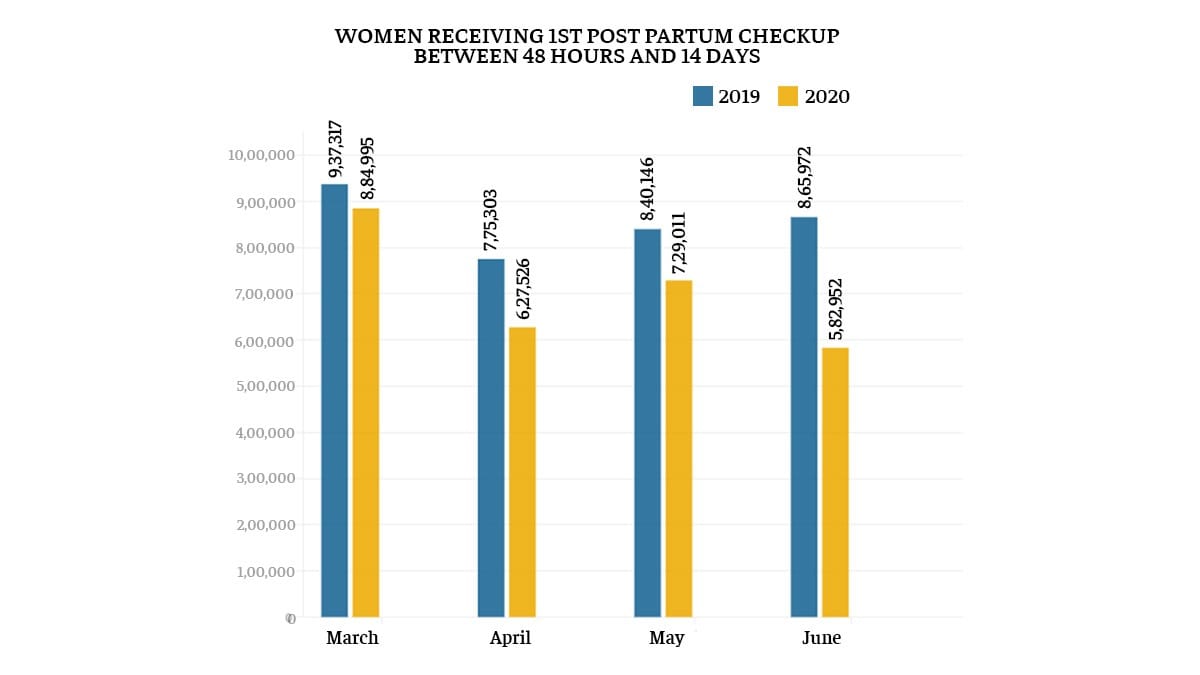
Child immunisation against BCG and polio fell by 28 and 30 per cent, respectively. Other vulnerable groups, such as cancer and tuberculosis patients, also saw a fall in services in April, May, and June by 28 and 56 per cent, respectively.
“There are three factors driving this fall in numbers,” Dr Sanjeev Kumar, former executive director of the National Health Systems Resource Centre and UNICEF advisor, told ThePrint.
“One is that people are reluctant to visit hospitals because of the pandemic. The second is that hospitals themselves are working in a limited capacity, and the third is ASHA workers and ANMs (auxiliary nurse midwives) are on Covid duty.”
Also read: Meghalaya sees 877 newborns, 61 pregnant women die in 4 months due to lack of medical care
Fall in women’s reproductive health
Data on the HMIS is collected from more than 2,06,000 healthcare centres across the country and updated regularly. Most of these are public institutions ranging from primary healthcare centres (PHCs) to hospitals. The data has been updated until June 2020.
In January, when there was no lockdown and healthcare services were freely available, the number of institutional births recorded was 16,86,421. This number fell by almost half in June — to 9,36,851.
A monthly breakdown and comparison to 2019 indicate the effect of the lockdown and spread of Covid-19.
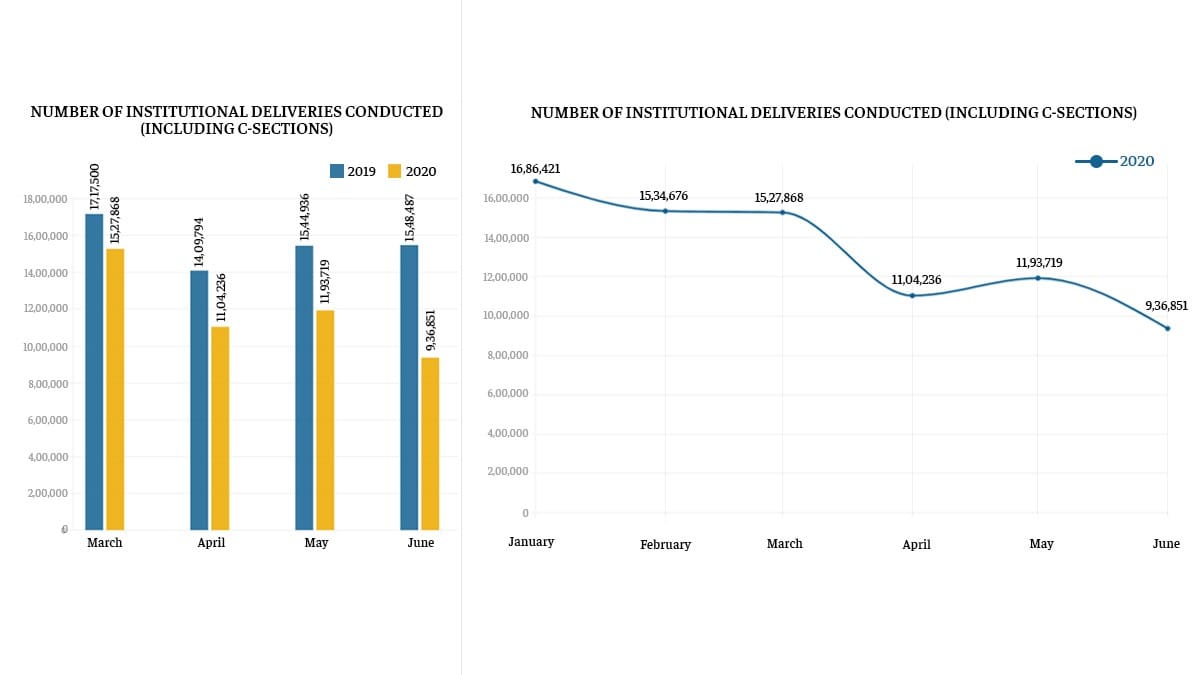
“The reason why the indicators worsened around the month of June is because cases and fear of the virus were rising. Healthcare interventions were focused on the cities and urban areas initially, but as migrants started to go back, rural areas were implicated too,” Poonam Muttreja, director of the Population Foundation of India, explained.
A recent study by Marie Stopes International (MSI) estimated that 13 lakh women lost access to contraception and abortion services due to the lockdown. The United Nations has also said the pandemic will spur a baby boom in 2021.
HMIS data indicates a drop in both abortion and distribution of combined oral contraceptive pills through the months of April, May and June, but access to emergency contraceptive pills saw a 39 per cent dip in April before rising to near normal levels.
Abortions fell from 48,727 in April 2019 to 36,924 in April 2020 (24 per cent), 53,350 in May 2019 to 43,295 in May 2020 (19 per cent) and 52,100 in June 2019 to 35,438 in June 2020 (31 per cent).
Similarly, distribution of combined oral contraceptive pills dropped from 30.8 lakh in April 2019 to 24.2 lakh in April 2020 (21 per cent); 31.5 lakh in May 2019 to 27.9 lakh in May 2020 (11 per cent) and 32.8 lakh in June 2019 to 22.8 lakh in June 2020 (31 per cent).
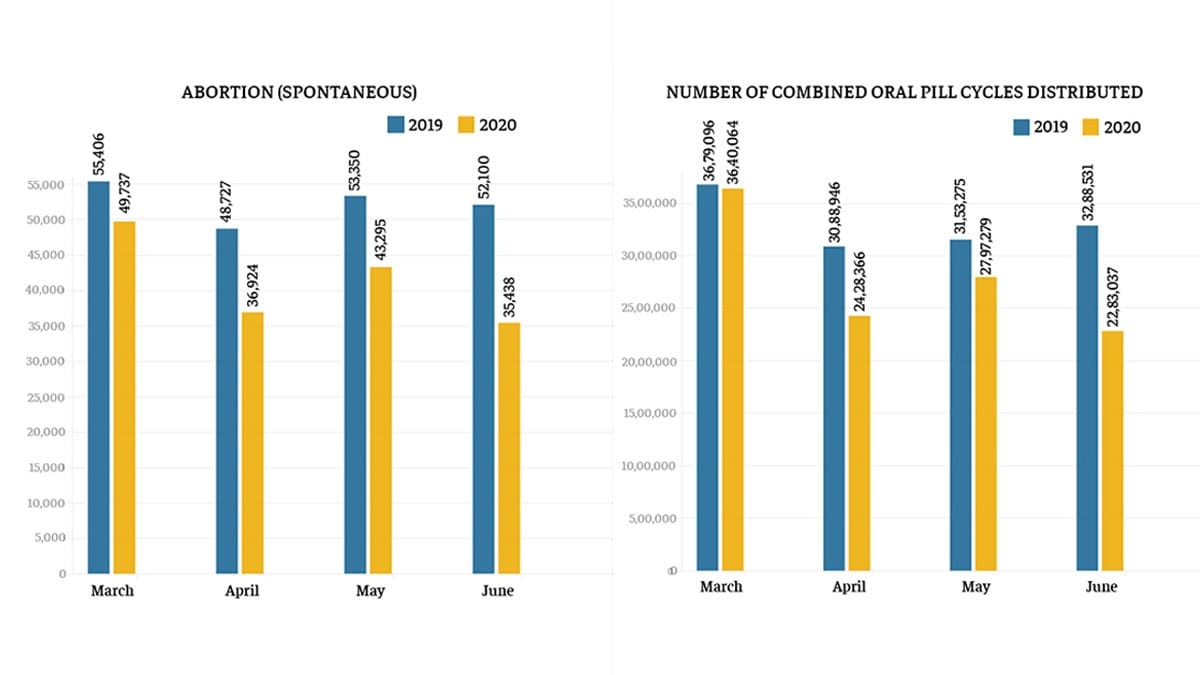
Distribution of emergency contraceptives, however, bucks this trend. While access was worst hit in April (falling to 86,462 from 1.4 lakh last year), it picked up in May and June to levels almost equal to last year.
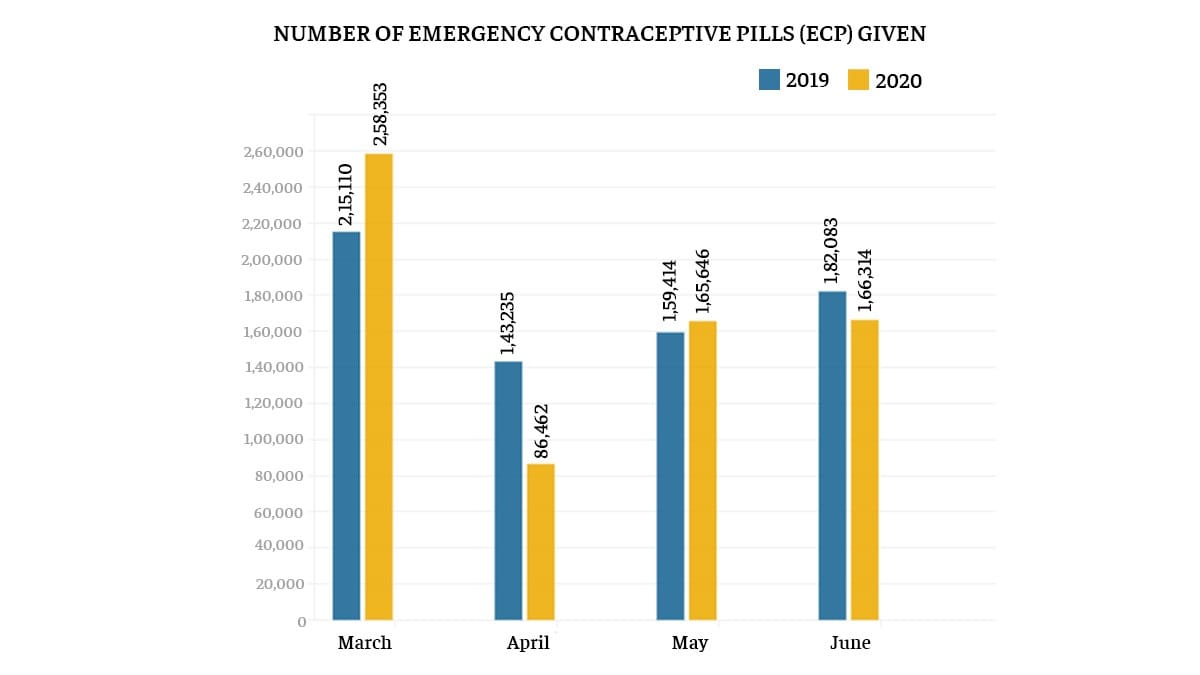
Also read: Cancers spread, heart conditions worsen — halt on elective surgeries taking its toll
Child immunisation
Both polio and BCG vaccinations were badly affected in April before picking up slightly in May and June. Compared to April 2019, polio vaccinations fell by 60 per cent this year (from 33.2 lakh to 13.1 lakh), and BCG by 38 per cent (from 16.5 lakh to 10.2 lakh).
Access to BCG vaccination improved in May to 15.5 lakh but dropped again in June to 12.9 lakh. Polio vaccinations show a similar trend.
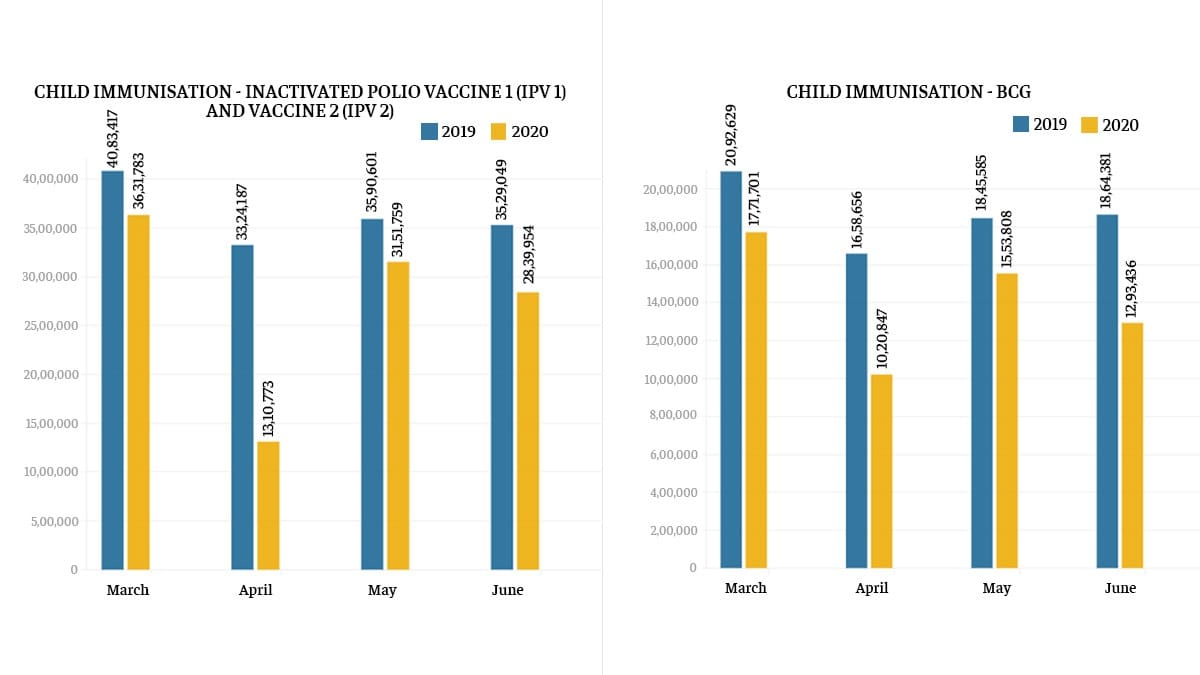
“The improvement in numbers shows vaccinations were taken up as soon as possible, but if the trend continues downwards and doesn’t meet the numbers of last year, children are at risk of contracting and spreading vaccine-preventive diseases,” Kumar said, adding, “So far there have been no outbreaks, which is a good sign, but it continues to be a risk if vaccination is not made a priority.”
Lessons from the data
Groups most affected by disruption to healthcare services were TB patients and cancer patients. HIV tests dropped too, as did major and minor surgeries.
“This points to three things: healthcare services to women, children, and other vulnerable groups needs to be seen as an essential service. It also shows that the public healthcare infrastructure needs to be strengthened to accommodate all these problems. These numbers also indicate that the private sector could have stepped in, but didn’t,” Muttreja said. She added, “Four months of lockdown hasn’t really improved our health infrastructure, except in a few urban areas, perhaps.”
A former senior health ministry official, however, told ThePrint, “While it’s true the services were affected, they may not have been as badly affected as the HMIS data show, since even a lot of data collection resources were diverted to collecting Covid-19 data. The services were still ongoing, and the HMIS data can’t be taken at purely face value.”
Also read: Covid an ‘eye-opener’, Manipur doctors say as pandemic exposes cracks in healthcare system



